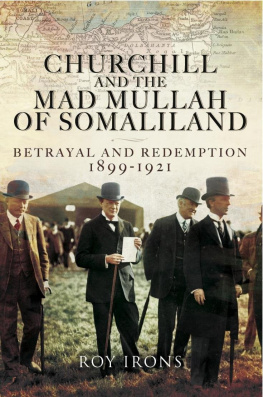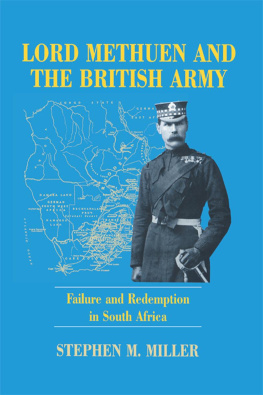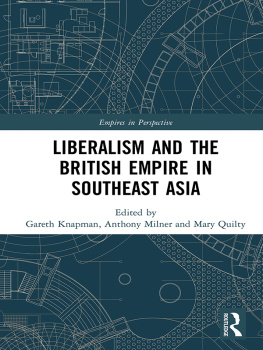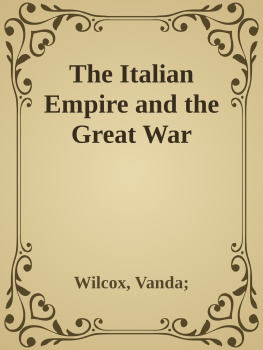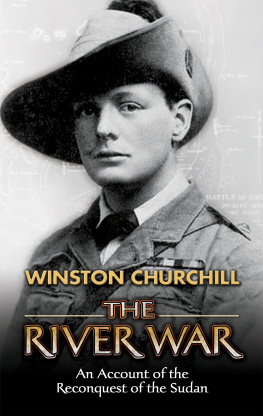This book is dedicated to my wife and best friend
Erica Rae Irons NNEB
13 September 1947 to 7 August 2010
A woman of great independence of mind and spirit, always true to herself,
whose love, compassion, strength and humour enthralled and empowered
children, delighted and inspirited her family and friends, and forever
captivated, and mended, her husband; to whom she was everything.
For thy sweet love remembered such wealth brings
That then I scorn to change my state with kings

First published in Great Britain in 2013 by
Pen & Sword Military
an imprint of
Pen & Sword Books Ltd
47 Church Street
Barnsley
South Yorkshire
S70 2AS
Copyright Roy Irons 2013
ISBN 978 1 78346 380 0
eISBN 9781473832268
The right of Roy Irons to be identified as the Author of this Work has been asserted by him in accordance with the Copyright, Designs and Patents Act 1988.
A CIP catalogue record for this book is available from the British Library
All rights reserved. No part of this book may be reproduced or transmitted in any form or by any means, electronic or mechanical including photocopying, recording or by any information storage and retrieval system, without permission from the Publisher in writing.
Typeset in Ehrhardt by
Mac Style, Driffield, East Yorkshire
Printed and bound in the UK by CPI Group (UK) Ltd, Croydon,
CRO 4YY
Pen & Sword Books Ltd incorporates the imprints of Pen & Sword Archaeology, Atlas, Aviation, Battleground, Discovery, Family History, History, Maritime, Military, Naval, Politics, Railways, Select, Social History, Transport, True Crime, and Claymore Press, Frontline Books, Leo Cooper, Praetorian Press, Remember When, Seaforth Publishing and Wharncliffe.
For a complete list of Pen & Sword titles please contact
PEN & SWORD BOOKS LIMITED
47 Church Street, Barnsley, South Yorkshire, S70 2AS, England
E-mail: enquiries@pen-and-sword.co.uk
Website: www.pen-and-sword.co.uk
Contents
Maps


Somaliland and the Horn of Africa.


The Somali Clans.

Somaliland - The Principal Tribes.
Foreword
I had long wondered about the campaign against the Mad Mullah of Somaliland, a war which had eventually proved so useful to the survival of the Royal Air Force as an independent service, and resolved to buy a book on the subject. Finding a work by Douglas Jardine, The Mad Mullah of Somaliland, reprinted in 1969 by The Negro Universities Press from an original publication by Herbert Jenkins Ltd of 1923, on Amazon Marketplace, my wife ordered it for me as a present but died suddenly before the book arrived. Before it came, I therefore decided that I would write a book on the subject, and dedicate it to her. This is the result.
On reading Jardines great work, however, I began to feel that there was little left to say Jardine seemed, in his oft-quoted book, to have said it all. But time reveals as well as hides; documents are available now which Jardine could not have quoted at the time; the rise of air power was contemporaneous with the campaigns, the independence of the Royal Air Force was facilitated by them; and the involvement of Sir Winston Churchill in both was confidential. Ninety years have passed since Jardine wrote, and the actors who occupied the stage in the drama, together with their inevitably fallible scriptwriters and often partisan audience, have now all fled this world, and their actions are perhaps more clearly viewed by critics with a century of hindsight. That century has not only seen the passing of the individual actors, but of their ideas, their mores, their lifestyles and their dreams. Their science and their mighty industry, and the weapons and institutions which had raised them above all preceding generations, now seem quaint and archaic. Through restricted and ancient windows we stare into their world, reading and watching as their images flicker across our screens, or are seen captured in faded and still fading photographs. The consequences of their actions now sometimes seem inevitable, and their mistakes, therefore, follies. But in passing judgement, it is wise to remember that the next hour itself is always an unknown land, and that the paths by which we commit ourselves to advance further into the future disappear in a rapidly multiplying mystery and unpredictability. Beyond a day, only the unwary, and beyond a year, only the fanatical, see with absolute certainty yet judgements have to be made, and paths plotted. History, and most especially military history, is often a study not of the past, but of what once seemed to the actors to be the discernible shape of the future looming in the mist, sometimes in the dim and fragmentary light of evidence, sometimes in the glare of religious or doctrinal certitude. The warrior has to live or die by how he acts on what he sees; but he is heavily, and increasingly, dependent on what the warriors foresaw, or the politicians allowed, many years before. He must weigh his options in the light of possibly conflicting intelligence, doctrine, experience, instinct and instructions, and issue clear orders in the heat of battle, while appearing unhesitating and decisive to his men. The historian must convey this uncertainty, striving to avoid what in business circles is sardonically said to be the function of the auditor to investigate the battle after the fighting is over, bayonetting the wounded.
While in the Western theatre the writers and the actors who once strode the imperial stage together with their audience are often denounced with shame and horror by the closed minds of a new orthodoxy, the Somali actors, on the other hand, appear to have inherited a similar script to that imposed both by nature and by nurture on their forbears. Their land is still as demanding and harsh. It is still partly under foreign rule. Their divisions are still deep, their quarrels still alive, their resentments still exquisitely expressed and their revenges still paramount. Their high natural gifts and abilities, which ought to be a wonder to the world, seem in their own land to be mostly destructive to themselves and to their repute. Yet nothing on this earth is permanent, not even long-cherished animosities.
I am grateful to many people for their assistance with this book. My good friend Geoff Johnson, an avid and very intelligent reader of histories, looked through the manuscript from the point of view of the reader, making many helpful suggestions, asking many questions and seeking many clarifications.
I was advised by Professor Philip Sabin that good maps are an absolute essential in a work of this nature. This seemed a most daunting task until a geologist friend, the lively and charming Louise Fletcher, volunteered her services. Louise handled all the complicated business of map making with patience and understanding, a process which was aided neither by my vagueness in requirement and ignorance of cartography, nor by my incompetence in cybernetics. It is always difficult to decide whether the reader would benefit from an extra place name; some places are essential by their importance and continual reference; but in multiplying the information, the sought for place becomes increasingly difficult to find in a maze of names. The inclusion of places was at my discretion, and although I took full advantage of John Fletchers very useful advice, I must therefore take all the blame if the reader finds a map difficult, while the long-suffering Louise must take all the credit for its usefulness.
Next page
